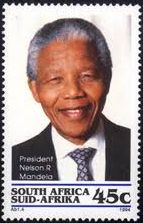Exploring the Legacy of Nelson Mandela

Introduction
Nelson Mandela, the iconic leader of the anti-apartheid movement in South Africa, remains a significant figure in the global fight for equality and human rights. His journey from prisoner to president embodies a transformative era in South Africa’s history and serves as a beacon of hope for oppressed people worldwide. Understanding Mandela’s life and legacy is crucial as societies continue to grapple with issues of injustice, inequality, and human rights violations.
Key Events in Nelson Mandela’s Life
Born on July 18, 1918, in the small village of Mvezo, Mandela’s early life was steeped in traditional African values. In 1944, he joined the African National Congress (ANC) and became a leading figure in the struggle against apartheid. His activism led to repeated arrests, culminating in a life sentence in 1962, during which he spent 27 years imprisoned on Robben Island.
Despite the harsh conditions, Mandela’s resolve only strengthened, and he emerged as a symbol of resistance against racial oppression. His release in 1990 marked a turning point for South Africa, paving the way for the first multiracial elections in 1994, where he was elected as the country’s first Black president. Throughout his presidency, Mandela focused on reconciliation, nation-building, and the promotion of human rights.
Global Impact and Recognition
Mandela’s influence transcends borders; he is often lauded as a hero of peace and a champion for social justice. His autobiography, “Long Walk to Freedom,” remains a global bestseller, providing insights into his philosophy of forgiveness and unity. In recognition of his efforts, he was awarded the Nobel Peace Prize in 1993 alongside then-South African President F.W. de Klerk.
Conclusion
Nineteen years after his passing on December 5, 2013, Nelson Mandela’s legacy continues to inspire movements for rights and justice worldwide. His life serves as a reminder of the power of perseverance and the importance of dialogue in the face of adversity. As many societies continue to fight against discrimination and inequality, Mandela’s teachings resonate deeply, encouraging a new generation to advocate for peace and social change. By embracing his values of forgiveness and equality, we can collectively strive to create a more just world.








